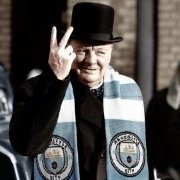Tatmadaw role beyond defence
-
Recently Browsing 0 members
- No registered users viewing this page.
-
Topics
-
-
Popular Contributors
-
-
Latest posts...
-
53
-
149
Air Fryer
He is right. During the Great Depression, poor Australians depended on rabbits as their only source of protein. They became fat-deficient, because rabbit meat is one of the leanest meats. Fat is essential in hormone production, and the absorption of fat-soluble vitamins A,D,E and K. -
93
Report Thailand to Mandate Tax Declarations for All Citizens by 2027
I guess "it's not that long ago" is relative to the individual, and it seems like yesterday that we were all doing Tax Clearance Certificates at Don Mueang, buying a departure tax voucher at Don Mueang, etc.😁 -
171
How much should you pay a girl if you ask her to stop working?
I'd say optimistic rather than lucky. -
11
Accident Russian Man Dies After Saving Girlfriend from Phuket Waves
But, you really think so? Now you made me sad. -
0
Is it safe to travel now? U.S. strikes on Iran spark warnings
Is it safe to travel now? U.S. strikes on Iran spark global travel warnings Global travel warnings issued after U.S. bombs Iran; cities like New York boost security to protect tourists and residents As tensions escalate in the Middle East following a dramatic U.S. military strike on Iran’s nuclear facilities, the question on many travelers’ minds is simple: Is it safe to travel right now? In a high-stakes maneuver dubbed Operation Midnight Hammer, the United States launched a coordinated bombing campaign on Saturday against three of Iran’s key nuclear sites — Fordo, Isfahan, and Natanz — in what the Pentagon described as a preemptive effort to halt nuclear weapon development. The mission involved over 125 aircraft, bunker-buster bombs, and Tomahawk missiles, marking a significant U.S. escalation in the ongoing Israel-Iran conflict. President Trump called the operation “very successful,” while Iran’s Foreign Minister Abbas Araghchi labeled it an “outrageous, grave, and unprecedented violation” of international law, promising that Iran would respond in due course. More: https://www.yahoo.com/news/articles/iran-european-powers-discuss-nuclear-053713377.html
-
-
Popular in The Pub

.thumb.jpg.3ee24d9400fb02605ea21bc13b1bf901.jpg)












Recommended Posts
Create an account or sign in to comment
You need to be a member in order to leave a comment
Create an account
Sign up for a new account in our community. It's easy!
Register a new accountSign in
Already have an account? Sign in here.
Sign In Now